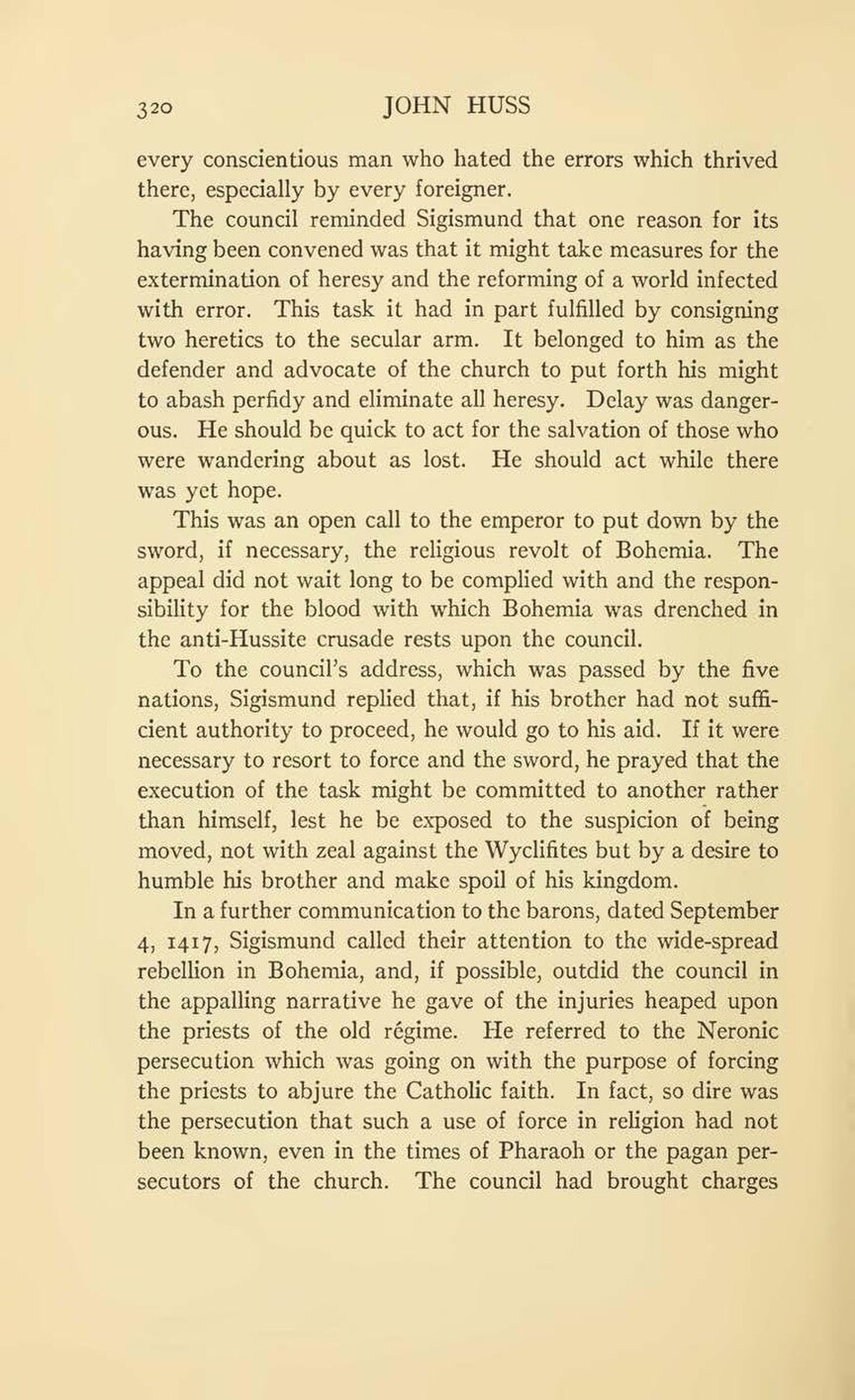every conscientious man who hated the errors which thrived there, especially by every foreigner.
The council reminded Sigismund that one reason for its having been convened was that it might take measures for the extermination of heresy and the reforming of a world infected with error. This task it had in part fulfilled by consigning two heretics to the secular arm. It belonged to him as the defender and advocate of the church to put forth his might to abash perfidy and eliminate all heresy. Delay was dangerous. He should be quick to act for the salvation of those who were wandering about as lost. He should act while there was yet hope.
This was an open call to the emperor to put down by the sword, if necessary, the religious revolt of Bohemia. The appeal did not wait long to be complied with and the responsibility for the blood with which Bohemia was drenched in the anti-Hussite crusade rests upon the council.
To the council’s address, which was passed by the five nations, Sigismund replied that, if his brother had not sufficient authority to proceed, he would go to his aid. If it were necessary to resort to force and the sword, he prayed that the execution of the task might be committed to another rather than himself, lest he be exposed to the suspicion of being moved, not with zeal against the Wyclifites but by a desire to humble his brother and make spoil of his kingdom. In a further communication to the barons, dated September 4, 1417, Sigismund called their attention to the wide-spread rebellion in Bohemia, and, if possible, outdid the council in the appalling narrative he gave of the injuries heaped upon the priests of the old régime. He referred to the Neronic persecution which was going on with the purpose of forcing the priests to abjure the Catholic faith. In fact, so dire was the persecution that such a use of force in religion had not been known, even in the times of Pharaoh or the pagan persecutors of the church. The council had brought charges
